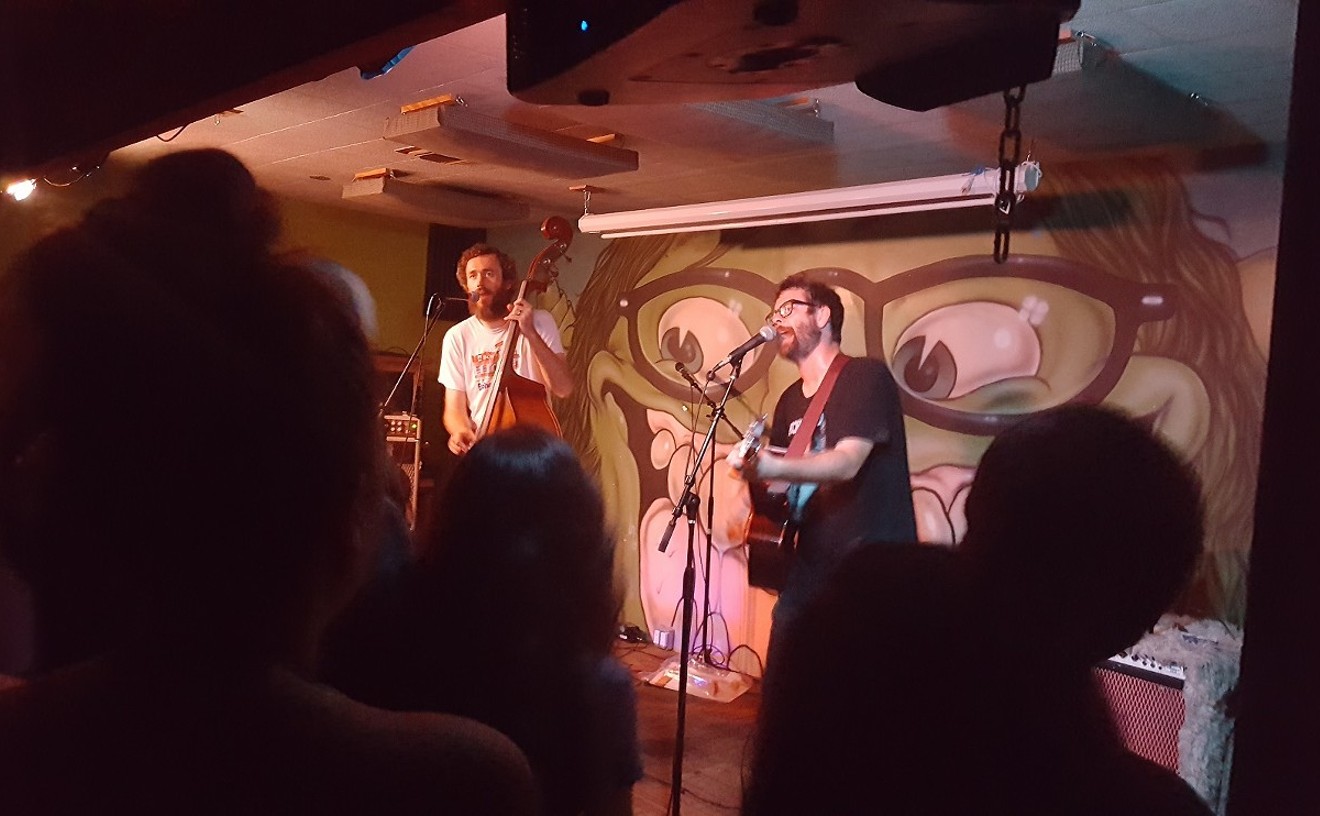"It's an opportunity for people who are interested in literature and poetry to come together, and by interested, I also mean curious," says Frances Sjoberg, the chair of the Poetry Center's statewide outreach committee. "It's a good spot for people who don't think they like poetry or don't know if they like poetry, but want to check it out."
Whether we like poetry, the subject affects absolutely all of us. Even if we're diehard off-the-grid neo-hippies crafting hemp jewelry, money and the economy weave themselves insidiously or brazenly into our lives.
"I started working on these poems somewhere around 2008, 2009 when the country was in the beginning of the Great Recession," says Briante, who aside from publishing two previous collections is also an associate professor of English and creative writing at the University of Arizona. "It seemed to me that ... the narratives that were being told from the media were peculiar. They didn't match up with the reality people were experiencing. One of the first things that I started to become aware of was how ... we privilege what the stock market is doing. It is the indicator that we hear about at the end of most newscasts."
Briante took the numbers running across the bottom of a screen or blurted out at the end of an NPR news brief and plugged them into various search engines — Google, Bartlett's quotations, even an online version of 17th-century English poet John Milton's Paradise Lost. Whatever those numbers generated in other texts or sources, she used those brief quotations to guide her own poetic creation that day.
As she became more intimately tied to the stock numbers, Briante noticed that, culturally, we speak of the Dow Jones industrial average as if it were a living being.
"People will hear newscasters say, 'Today the stock market rallied, the stock market had jitters.' It produced an effect where the market becomes ... this creature, not as a product of a culture or even more radically something that, to a certain extent, we're all participants in — if we think of the market as another thing ... we're trying to appease it like some weird god."
"I like the tool of using the Dow Jones industrial average and using the language of money," adds Sjoberg, "both as a marker for one of the ways in which we're defined culturally and also as a symbol for our less definable selves — our spiritual selves, our psychological selves — the way that we're driven by the Dow and the economy in ways that we don't always understand."
During the time Briante was writing her financial poems, she and her husband, poet Farid Matuk, bought a house in Arizona and also had a child, experiences that are seen as part-and-parcel of the American dream where putting down roots and having children are conflated with responsible citizenship and, therefore, financial stability.
"I was in the midst of recording the closing numbers of the Dow and went through a miscarriage. The first easy feeling I had was, 'I had a miscarriage and the market doesn't care.' Later, I was fortunate to have a child, and the market still doesn't care. I came to a different realization which is no, the market doesn't care in the sense that the market doesn't go down because I have a child or don't have a child, but parenting was a lens through which I realized how everything is sort of touched by the market. Part of what I feel like our economic system is asking of me as a parent is to constantly try to suggest that my child has value."
In her poem "Mother is Marxist," Briante writes, "Parents register and respond often seeking out the places (the 'good' neighbor-/hood or private school) where a child's value is high enough in relation to the/needs of others to make them relatively safe/or a parent may reaffirm existing market valuations./and if the child is female or presents as female/and if the child is queer or presents as queer/and if the child is poor or presents as poor/and if the child is of color or ethnic or presents as of color or ethnic/a little spark of mica in a field of sand."
When speaking to Briante, she's quick to point out that her personal experience of motherhood is not universal, nor does it give her a perch on a privileged high ground. Instead, she says she falls more in line with the views of African American poet and University of California professor Fred Moten when it comes to extrapolating the meanings of motherhood into a wider human context.
"[Moten] thinks a lot about confronting the irrefutable individualistic nature of our own culture and society, that we really value individual achievement over anything else," Briante says. "One of the things he often talks about is that the maternal provides the space for another way of thinking about how we might be in the world because of the interdependence of mother and children ... Can we imagine another way of being that provides a different kind of relationship, an interdependence as opposed to a quest for individual success."
Phoenix Summer Social: Susan Briante will take place on Wednesday, July 13, from 6 to 8 p.m. at Co+hoots, 221 East Indianola Avenue. The event is free.










